I am Amanda Botfeld, author of A Girl’s Guide to Poker, and an instructor for the women’s empowerment organisation Poker Power. I am also a female poker player. I think it’s essential to talk about why we need more women in this game - not in vague terms or lackadaisical narratives.
We need to get specific. We need to speak clearly and powerfully about the benefits of widening the player pool. Emphasise why a poker education for a girl is equally as essential as it is for a boy, if not more so.
The Real Meaning of “Empowerment”
Even though I learned the basics of the game as a kid from my father, I didn’t start playing poker until I was 23-years-old. It was a difficult time for me. Firstly, I was working in politics. It seemed hard for anyone to take me seriously as a young woman. I felt like a barking puppy.
And while most people admire youth, I couldn’t wait to be in my forties – that’s when people would finally listen. Or so I thought.
But career aside, I think the experience of being treated as small when you are a young woman is not particularly unique.
I wanted Power - - Respect - - Authority. Instead, I got polite smiles and a sense of being humoured every once in a while.
That all changed when I played poker.
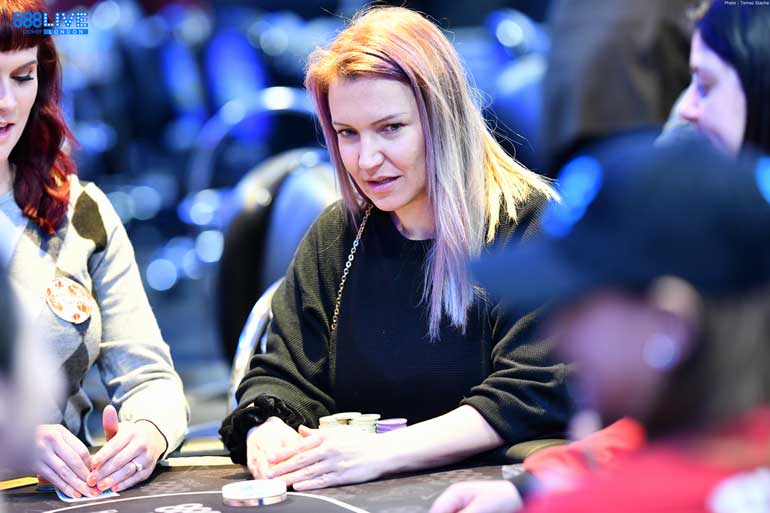
Maybe people didn’t want to listen to my yapping (fair enough). So, I let my chips do the talking.
Actions speak louder than words!
And there’s nothing that quite gets people to pay attention to you like putting them to a decision for all their money. Working in geopolitics made me feel quite helpless and ineffectual.
Shoving all-in had the opposite effect:
I was larger-than-life.
The word “empowered” is thrown around quite casually when we speak about women. But in poker, that feeling is genuine – you are in power. You are dictating the action.
I still remember the surge of adrenaline that took over the first time someone deferred to me, saying, “I check to the raiser.” Me? The raiser? What a rush!
Instead of constantly living a life trying to two-step with others, now I got to set the pace.
It was so freeing. The sense of liberation that comes with leading the way is an experience I wish for all people - especially women.
I was teaching a class for the women’s organisation Poker Power, and a student made a comment I will never forget. She had just gotten back from a women’s conference – from a big name group – and said it was incredibly depressing.
“All I took away was the many obstacles that women face,” she explained (might I add that she is a business owner with an MBA). “But this [poker] is different. I feel like I can actually do something about it now.”
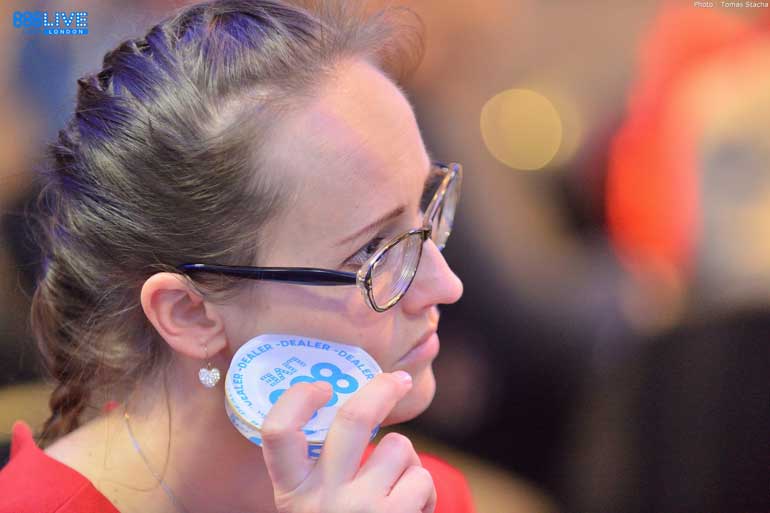
When she entered the poker class, she was very shy and conservative. But she ended up pulling off the biggest bluffs – and was highly effective. Poker allowed her to “speak up” using her chips.
Betting is an immediate action any woman can take right now to break free of passivity.
This measure is what I mean by saying that poker empowers women. (As long as they learn correctly… We encourage all our students not to limp!)
Making Aggression a Habit
Here’s another reason women should study poker – in addition to the sense of “bigness” that comes with betting –
It trains aggression - and rewards it.
The crazy thing is, whenever I give this spiel, women tell me they’re uncomfortable even with the word “aggression.”
“Can we say ‘assertive’ instead?” they ask.
You can see why I’ve got my work cut out for me.
Linguistics aside, computerised heads-up displays (HUDs) track and measure a player’s “aggression frequency.” There are particular thresholds associated with success. Data metrics indicate you cannot be as successful in this game if you do not exercise proper – ample – aggression.
There is also positive feedback reinforced in poker when you take bold actions. Namely, the euphoric high when your bluff gets through.
- Winning requires bluffing.
- Bluffing requires betting.
- Betting requires aggression.
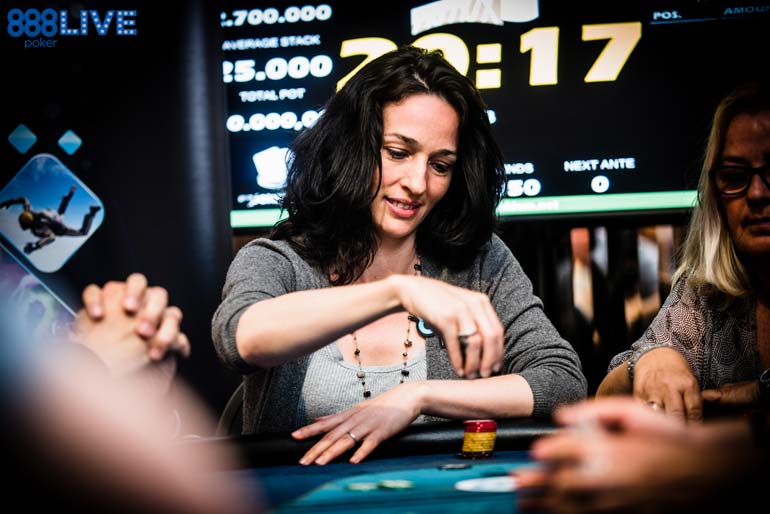
You would be shocked how many competent, intelligent, and successful women struggle with this concept. A senior employee once asked me point-blank, “Why would I ever bluff in poker?” I explained it was necessary to win. I don’t think winning even motivated her, in all honesty. It wasn’t enough.
Compare this with when I used to teach high school-aged girls for Poker Power. Without fail, they bluffed like crazy. They enjoyed applying pressure, putting their friends in spots and raking in chips.
But something happens between ages 15 and 50 where they lose this drive. It’s hard to watch. My classes were almost entirely consistent –
- The high school girls always played like maniacs – living to bet, raise, and bluff
- The adult women played shellshocked.
There were very few exceptions. So, it’s not like the women didn’t have it in them at some point in their past. Life just had gotten the best of them. They went from playing to win to playing not to lose.
How sad is that? It’s not OK.
We need to support women in nurturing their flame. keeping that fire hot. Poker reinforces and strengthens our competitive drives – it’s aggression as a necessary practice.
I genuinely believe through my teaching experience that, for many women, if they don’t use it, they lose it. Competition can’t end for the rest of their lives after high school sports.
We need poker to continue sparking these instincts well into adulthood.
Poker makes aggression a habit.
Name Your Price
The final big reason why women need to learn poker is for financial acumen. No, I’m not just talking about specific skills like budgeting – there’s more to this than bankroll management.
Most financial education looks like this: “Spend less, save more!”
But there is so much more to it than that. And it’s not a lot of fun hearing what NOT to do constantly, as in “don’t buy expensive lattes”. Or, if you’re a Millennial like me, “don’t splurge on avocado toast.” Who wants to read financial advice like that?
This kind of content is incredibly un-fun, but it also obscures the question of generating income in the first place.
The key to wealth isn’t frugality. It’s the ability to generate capital.
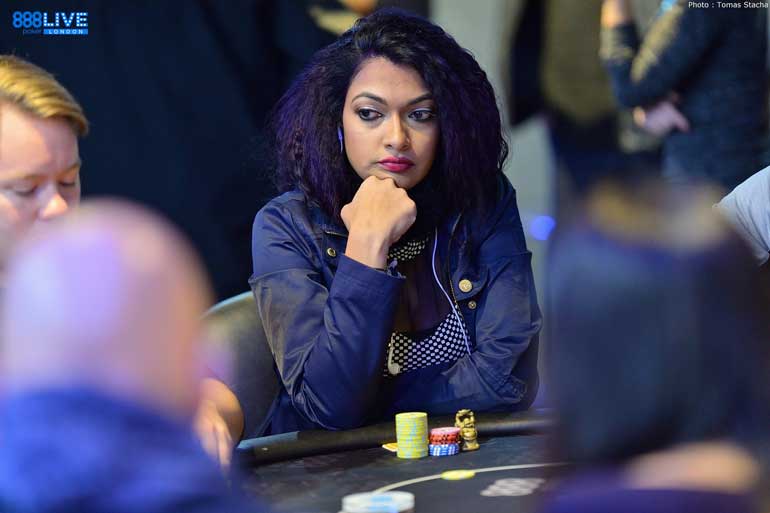
That’s what poker teaches.
While you still need to budget your chips, I like using poker in my classes to teach financial literacy because it also veers into investing.
All your profits will be relative to the size of your bets.
- You need that nest egg.
- Triple-ups are great at any stack depth.
- But it’s much more meaningful if you’re tripling a big stack.
We learn in poker tournaments to avoid getting “blinded out”. If you’re in the big blind with less than two big blinds, you should usually go all-in with any two cards. Anything less won’t provide a worthwhile ROI.
Even more critical and pertinent, I always stress the importance of margins. Many of my beginning students are hesitant and content to win small pots and not go for max value.
That is a mistake.
You absolutely must win big pots – medium pots will not cut it. When you know how to play poker – no matter how good of a player you are – there is no way you will win every hand.
Some pots you are just going to lose. So, to overcome this make sure the pots you do win are large enough to withstand the pots you don’t.
Your wins need to outweigh your losses. In other words, you need to win at a high enough margin to be successful.
I’ve taught this lesson to financial analysts from the biggest firms in the world. Let me tell you - it does not fall on deaf ears. The message of maximising your margins rings loud and clear.
Lastly, most of us do not have experience managing hefty sums of money. That’s why I love tournament poker. Everyone gets a massive stack – or tons of capital as I like to think of it.
Playing deep-stacked is like having disposable income instead of living paycheck-to-paycheck and having your expenses determine your decisions.
You want to allocate it wisely.
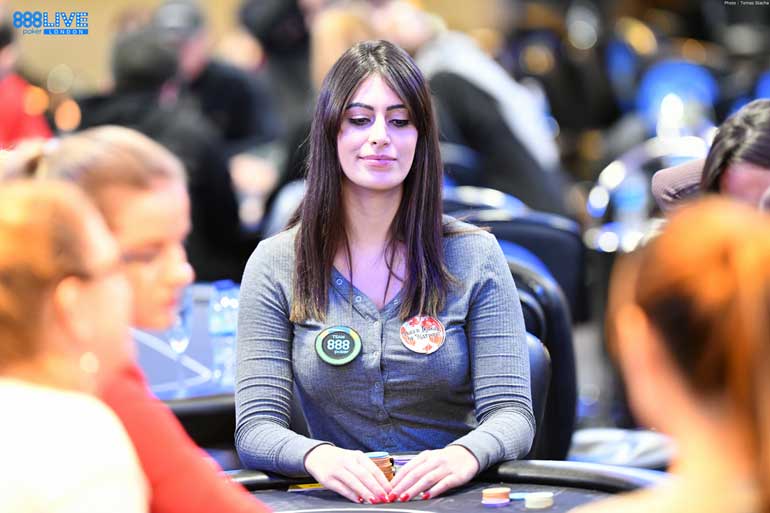
Don’t slowly lose your chips on limped pots that add up. Instead, use that extra financial horsepower to put in big bets and raises – furthering that initial nest egg we discussed earlier.
Leverage is also an incredibly critical financial concept that tournaments allow you to practice regardless of your bankroll. Even tourneys that only cost a few dollars will give you tens of thousands of chips. It’s almost like a practice exercise in being rich!
- Society teaches us to approach our finances from a place of scarcity.
- Poker teaches us to approach our finances from a place of power.
Count this again on the list of why understanding the art of poker leads to genuine empowerment – for men and women alike.


